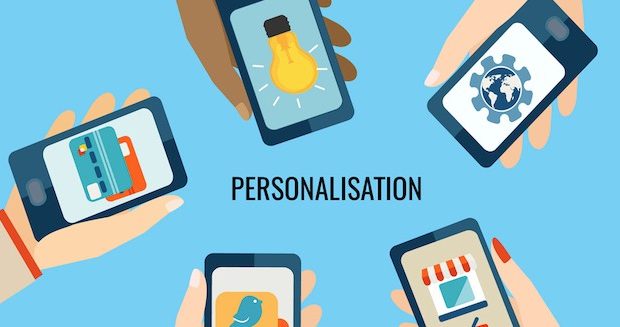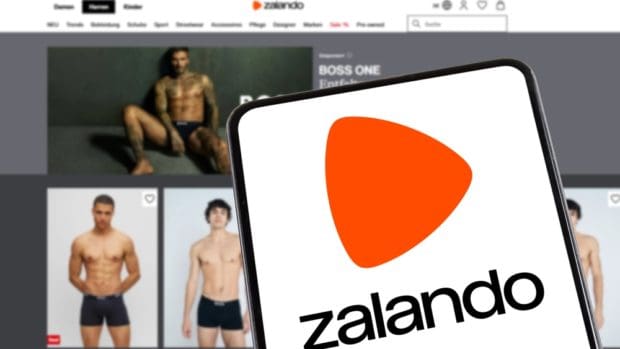
ServiceNow, a digital workflow company, has published its Consumer Voice Report 2024: Tackling the brand loyalty crisis. The annual report highlights that 67 per cent of UK consumers are less loyal to brands now than they were 2 years ago. It also shows that over a third (33 per cent) of UK consumers now prioritise the cheapest option over brand loyalty.
With price point overriding such loyalties or sustainability credentials, the report also underscores how a “race to the bottom” mindset is unsustainable. While cost of living pressures and shifting customer expectations are primary reasons for declining brand loyalty, it suggests that, to survive, businesses must now adopt AI and innovative technologies to blend traditional and tech-forward customer interactions.
Based on a survey of 2000 UK adults, the findings demonstrate significant shifts in customer perceptions and behaviours over the past two years and their impact on loyalty, including:
- Two-fifths (39 per cent) of Brits say they are having to spend more than they did two years ago, with rising costs the predominant reason, claim 77 per cent.
- Although consumers want to see the introduction of new technologies, 64 per cent would never want to see entirely AI-driven customer service.
- In 2024, 93 per cent of UK customers value prompt customer service response times. Two fifths (39 per cent) expect the shift to 24/7 customer service in the next 12 months, and the overwhelming majority wanting 24/7 support in this decade.
“Looking at the latest developments from our research, we can clearly see that in the past year consumers have become more tech-savvy and aware than ever before. This means that today, businesses are facing a higher demand for personalised, faster, and hyper convenient experiences. The good news is that companies can now meet all of those expectations by investing in AI-driven technology, as well as keep training their agents,” said Simon Morris, VP Solution Consulting at ServiceNow. “With consumers having a more positive sentiment and a better understanding of how technology plays in their favour, there is a huge opportunity for businesses to capitalise on the momentum and win their customers back.”
The new AI: Authentic Intelligence
Mistrust (36 per cent) and security concerns (12 per cent) are key factors pushing customers away from AI. And while Integrating tech means a more seamless service, 34 per cent of consumers across the UK still don’t trust AI alone, so human touch remains key. Two fifths (40 per cent) don’t want to deal purely with AI in order to protect jobs from being replaced, suggesting they would judge brands who did. Despite this scepticism, customers are increasingly more receptive to using AI in customer service. With almost nine out of ten (87 per cent) seeking quick, real-time support, there is a clear opportunity for AI-driven technology like chatbots.
Although there is still scepticism, consumers are increasingly more receptive to using AI in customer service, providing the human element is not lost. AI should not – and cannot – replace human interaction entirely. 61 per cent across the UK still recognise the irreplaceable value of in-person customer service chats (across email, phone & live chat).
The customer experience of the ‘future’ is tech-first… and sooner than you think
Consumers are highly receptive to future technology innovations such as AR and self-replacing smart products. By 2030, 61 per cent of customers expect the integration of VR for ‘try before you buy’ experiences, as well as the standard practice of smart products being instantly and autonomously replaced any time they are damaged. By 2050 these numbers jump to 71 per cent and 72 per cent, respectively.
These trends highlight that technology is not only a solid investment, but the adoption of innovative technologies in CX is welcomed and expected soon. For the brands that can move swiftly to integrate these services seamlessly, delighted customers are set to follow.
Although 64 per cent would never want to see customer service entirely driven by AI, UK consumers do want to see the introduction of new technologies. In the UK, 21 per cent already prefer chatbots for basic information, while 38 per cent opt for human support for complex issues.
In fact, consumers are highly receptive to future technology innovations such as AR and self-replacing smart products. By 2030, 61 per cent of customers expect the integration of VR for ‘try before you buy’ experiences, as well as the standard practice of smart products being instantly and autonomously replaced when they are damaged. By 2050 these numbers jump to 71 per cent and 72 per cent, respectively.
Today’s customers demand round-the-clock CX
One of the key requirements of today’s consumer is that help should be available round the clock. In good news for businesses, AI is helping to bring this otherwise expensive ask closer to attainable reality.
Two fifths (39 per cent) expect the shift to 24/7 CX in the next 12 months, and the overwhelming majority want 24/7 support in this decade. This shows the opportunity to invest in rapid, intelligent technologies to propel customer experience into the future.
With the proliferation of social media, customers are also expecting rapid responses. However, despite its fast pace and ready availability, nearly half (48 per cent) wouldn’t use social media for customer experience. This suggests businesses needing to demonstrate ROI must redeploy social media budgets to meet changing CX demands.
Return to Analogue: The future of CX is high tech meets high touch
UK consumers are demanding a variety of different customer service channels, including chatbots, phone calls, emails and more, with 85 per cent seeking multiple options. This underscores the importance of omnichannel customer service to meet their needs effectively.
The report therefore suggests that businesses must now adopt a hybrid customer experience strategy, blending automated and human-powered services to enhance the customer experience, because neither approach alone meets current consumer expectations. The future of CX also appears to involve deploying automation to free up agents for personalised support.
“According to this report, 67 per cent of UK consumers are less loyal to brands now than they were two years ago,” added Jo Causon, CEO, The Institute of Customer Service. “This coincides with our UK Customer Satisfaction Index (UKCSI), showing a record fall in satisfaction in January 2024. The UKCSI now stands at its lowest point since 2015, and nearly 41 per cent of customers who are dissatisfied with a business say they avoid using it again – suggesting that declining service levels may be causing customers to vote with their feet.”
“Whilst ServiceNow’s report also suggests cost-of-living challenges are prompting some customers to switch to lower-cost options that don’t offer a consistent service experience, businesses are unlikely to retain new customers who may initially be tempted to switch supplier in an effort to save money. Our own research also shows that 31% of customers are prepared to pay more for better service versus opting for the low-price no-frills option.”








Share